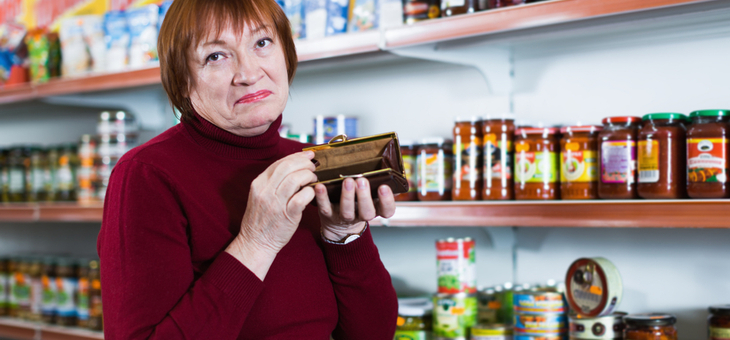Households across the country are feeling increasingly concerned about meeting monthly expenses as a result of rising living costs. And with further Reserve Bank rate cuts forecast, major retailers tipped to abandon widespread discounting, and fuel costs up 10 per cent in the last quarter, the outlook appears to be unchanged.
The Household Financial Comfort Report, a survey of 1500 Australian households in June, says that ‘comfort’ levels have fallen since the start of the year. It blamed falling property prices, a weakening job market and subdued wage growth.
The households labelled the losers in the comfort stakes were those reliant on the Age Pension and renters. Rental payment stress was reported by 62 per cent of renters, up 11 points in the six months to June 2019.
The winners were households that were not dependent on the Age Pension, those with balances greater than $1 million, and young and middle-aged singles and couples with no children.
The report found that 38 per cent of households were “unable to afford essentials” or had “no money left over afterwards”.
It noted a “lack of awareness and passivity towards superannuation”. Twenty-five per cent of households “either didn’t have a superannuation fund or didn’t know what type of superannuation fund they were in,” and only 17 per cent were actively “building wealth for retirement as a financial goal”.
ME Bank consulting economist Jeff Oughton said financial comfort across most of the 11 drivers that make up the index had fallen.
“The financial comfort of Australian households eased over the past six months, with a significant fall seen in comfort with wealth,” he said.
“Despite lower mortgage loan rates, expected cuts in personal income tax and higher local and global equity prices, this is largely a consequence of continued decreases in the value of residential property in many parts of Australia.”
Living costs were the biggest worry with about 44 per cent of surveyed households saying the cost of necessities was their biggest financial worry. This was followed by worries about the level of cash savings on hand (34 per cent), ability to maintain lifestyle in retirement (31 per cent) and the impact of legislative change (19 per cent).
One in five households reported that they would be unable to raise $3000 in an emergency and about 40 per cent of households said they spent their entire income every month.
The report found significant decreases in financial comfort among working Australians, with 26 per cent of all workers saying they felt insecure in their current job. Australian Bureau of Statistics (ABS) research shows that there has been a 39 per cent rise in the number of unemployed over-65s looking for full-time work, and a 28 per cent rise in those looking for any type of work.
“It’s clear from the latest report that there are increased concerns around job availability and underemployment,” Mr Oughton said.
“The number of workers who felt it would be difficult to find a new job increased by 16 per cent to over one in two employees, which is the highest recorded since late 2016.”
The survey found that a minority of households expected to fund their own retirement.
“Currently, about one out of five households (22 per cent) expect to ‘fund retirement with their own superannuation’ (up one point in the past six months). This is slightly more than an average of 19 per cent since the survey began.
“The number of households expecting to ‘rely on the government pension’ during retirement remained steady at 23 per cent. A further 39 per cent expected to partly fund their retirement with a government pension. Finally, a significant proportion of households (17 per cent) simply did not know how they would fund their retirement.
If you enjoy our content, don’t keep it to yourself. Share our free eNews with your friends and encourage them to sign up.
Related articles:
Over-65s slipping through the cracks
One in 50 ‘fleeced’ by bank
Are you too smart to be scammed?

